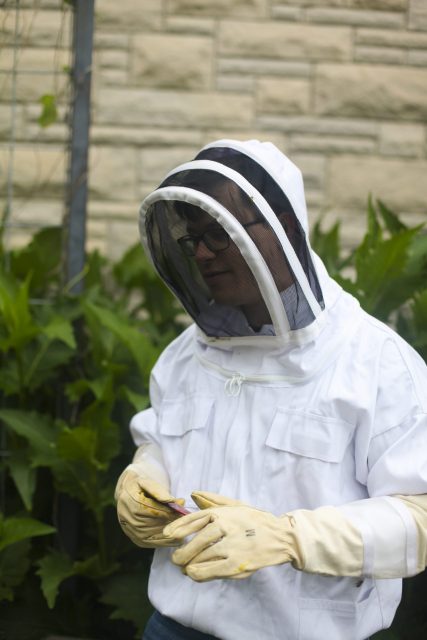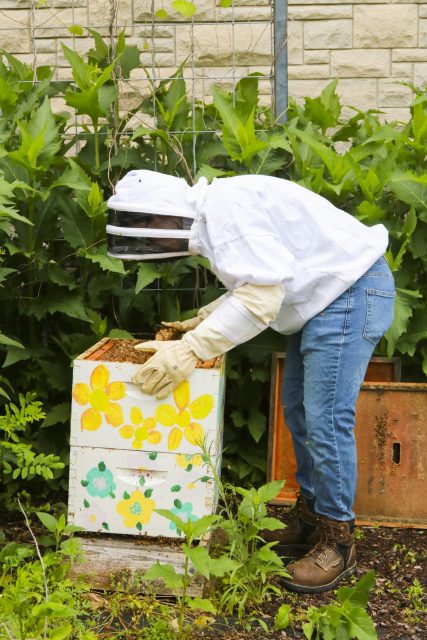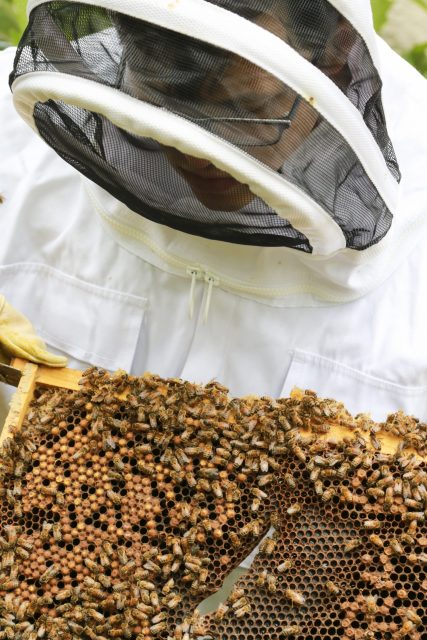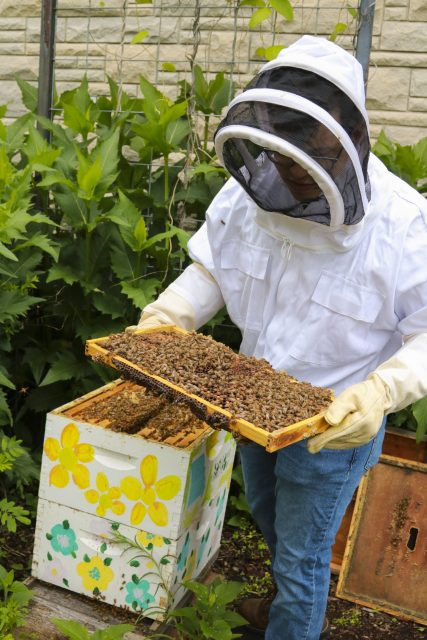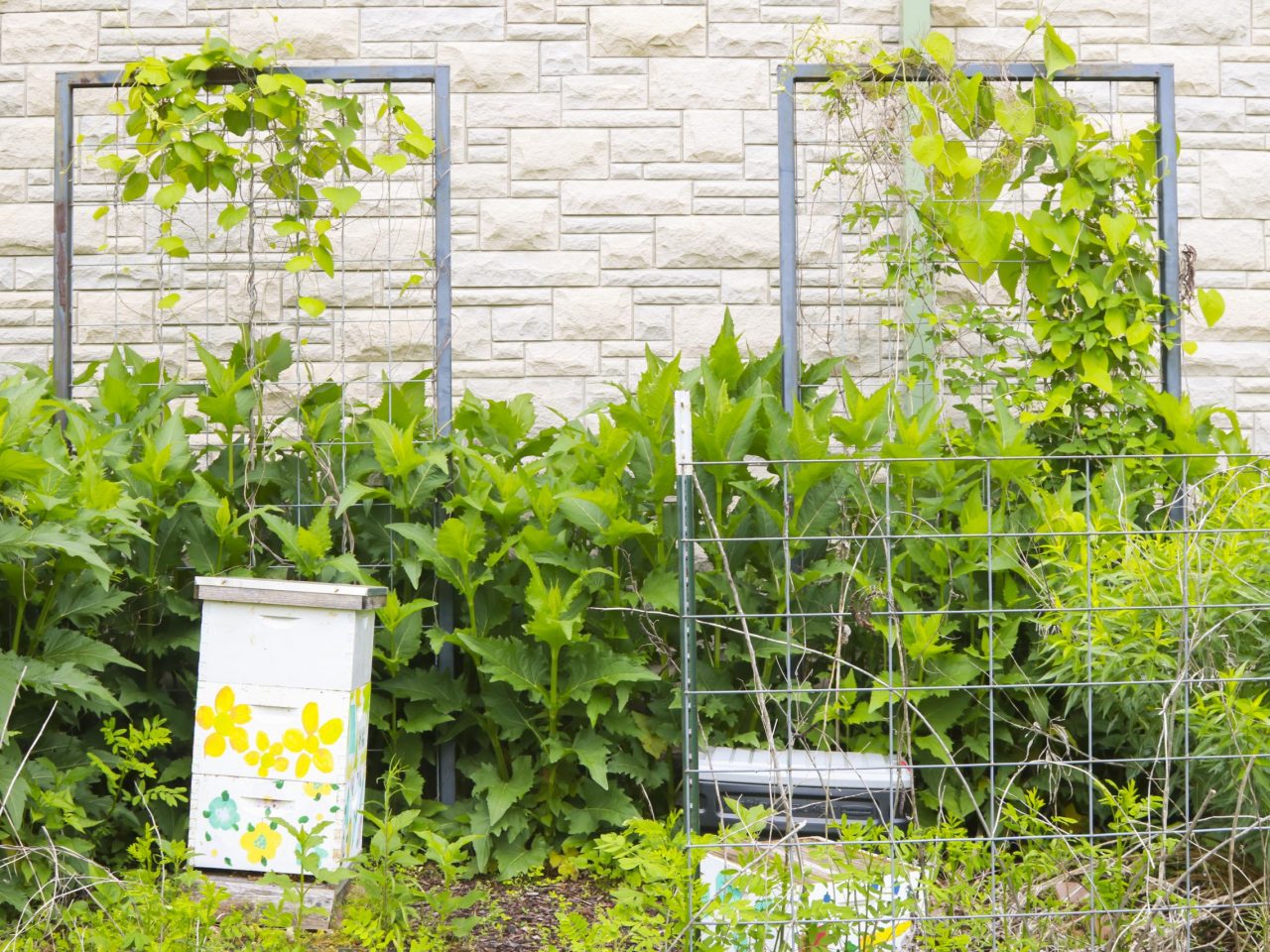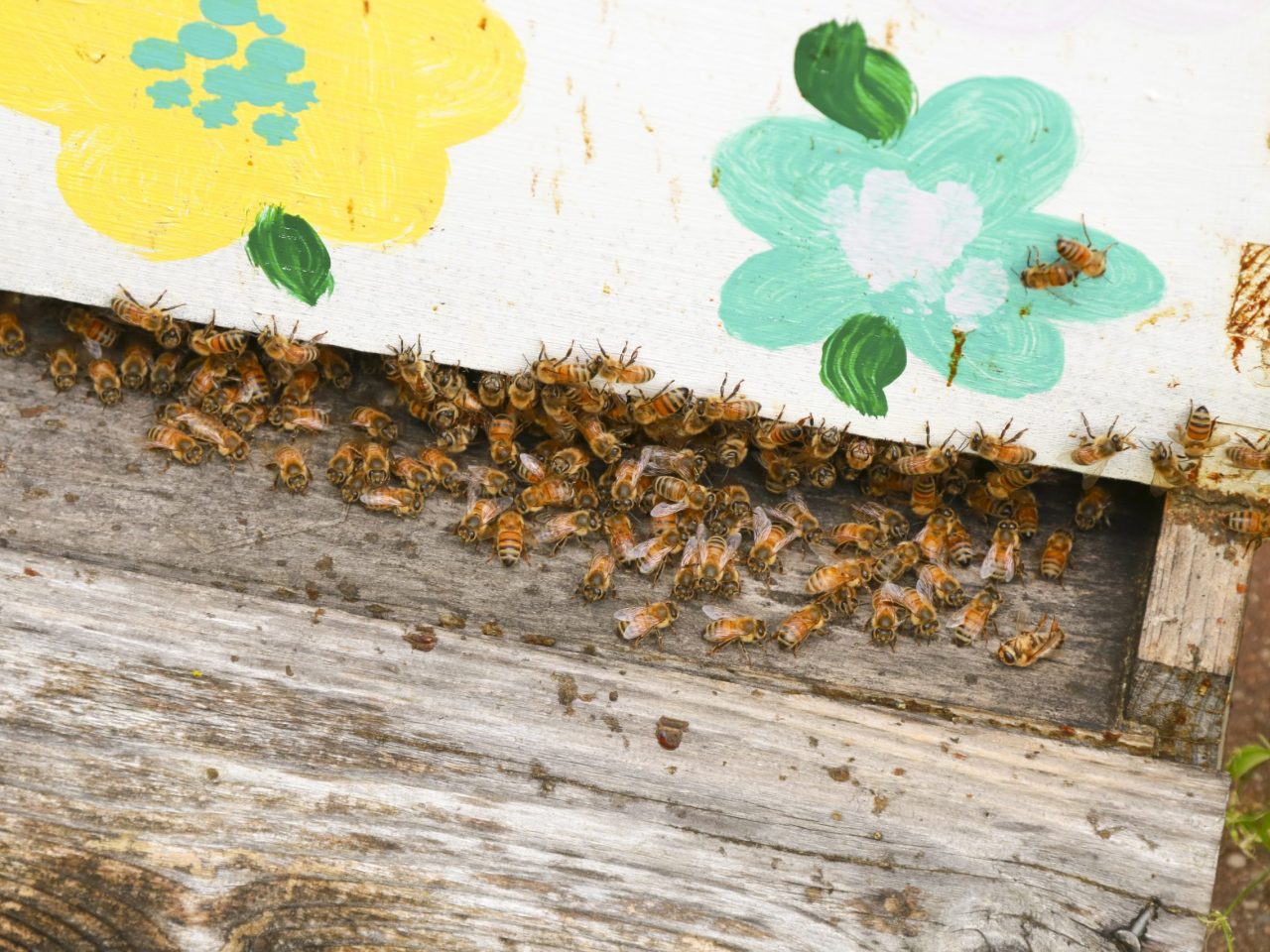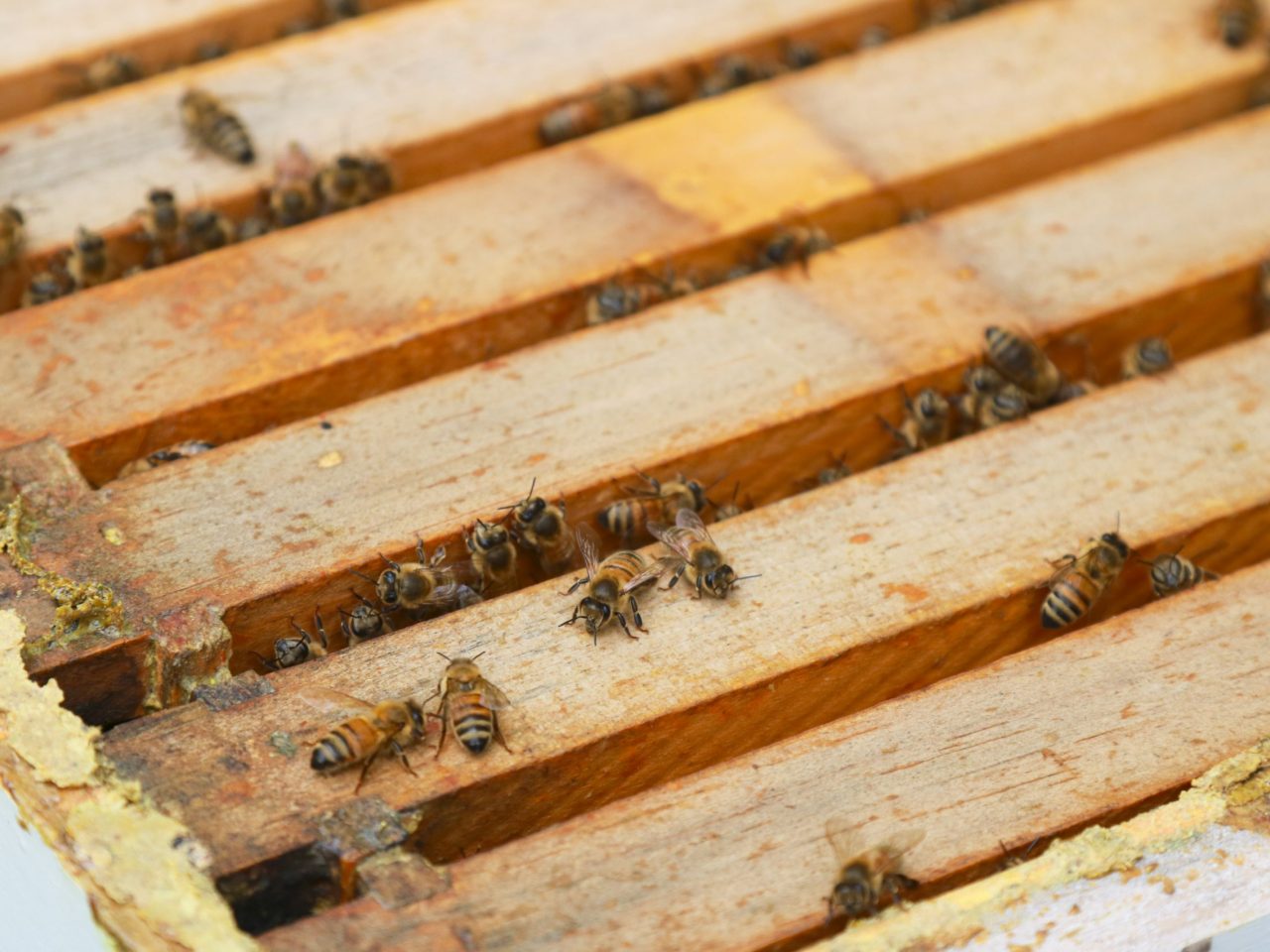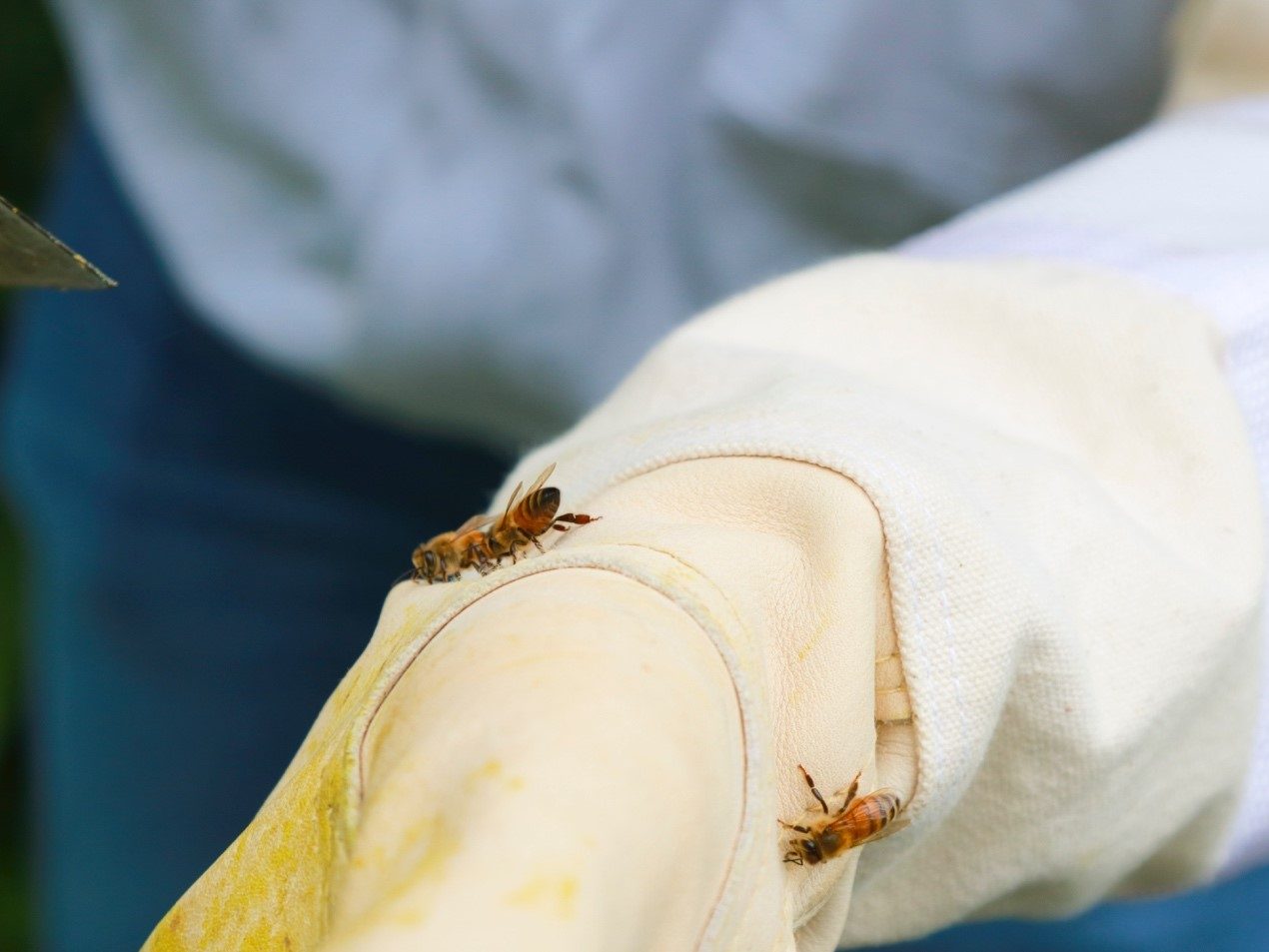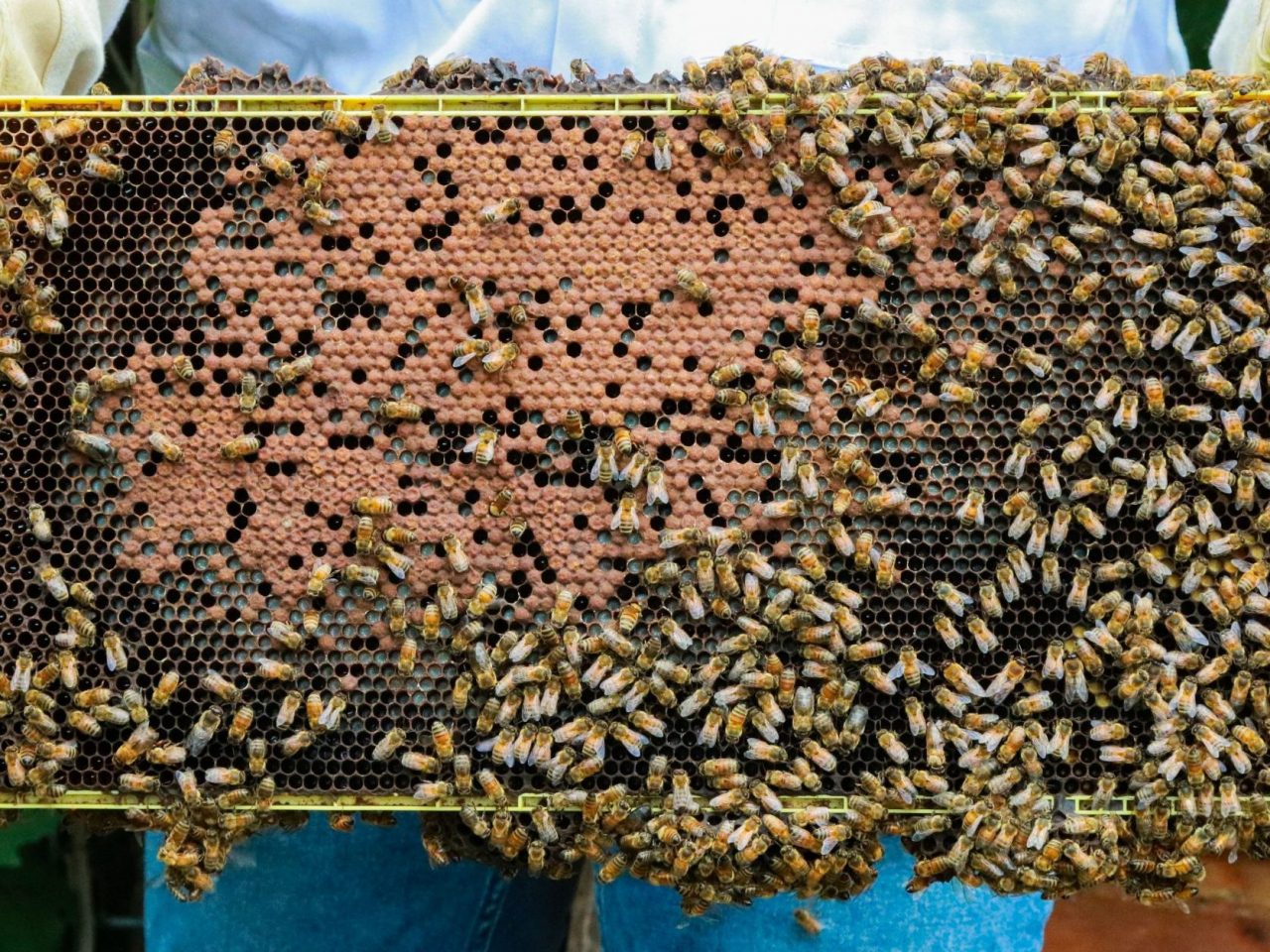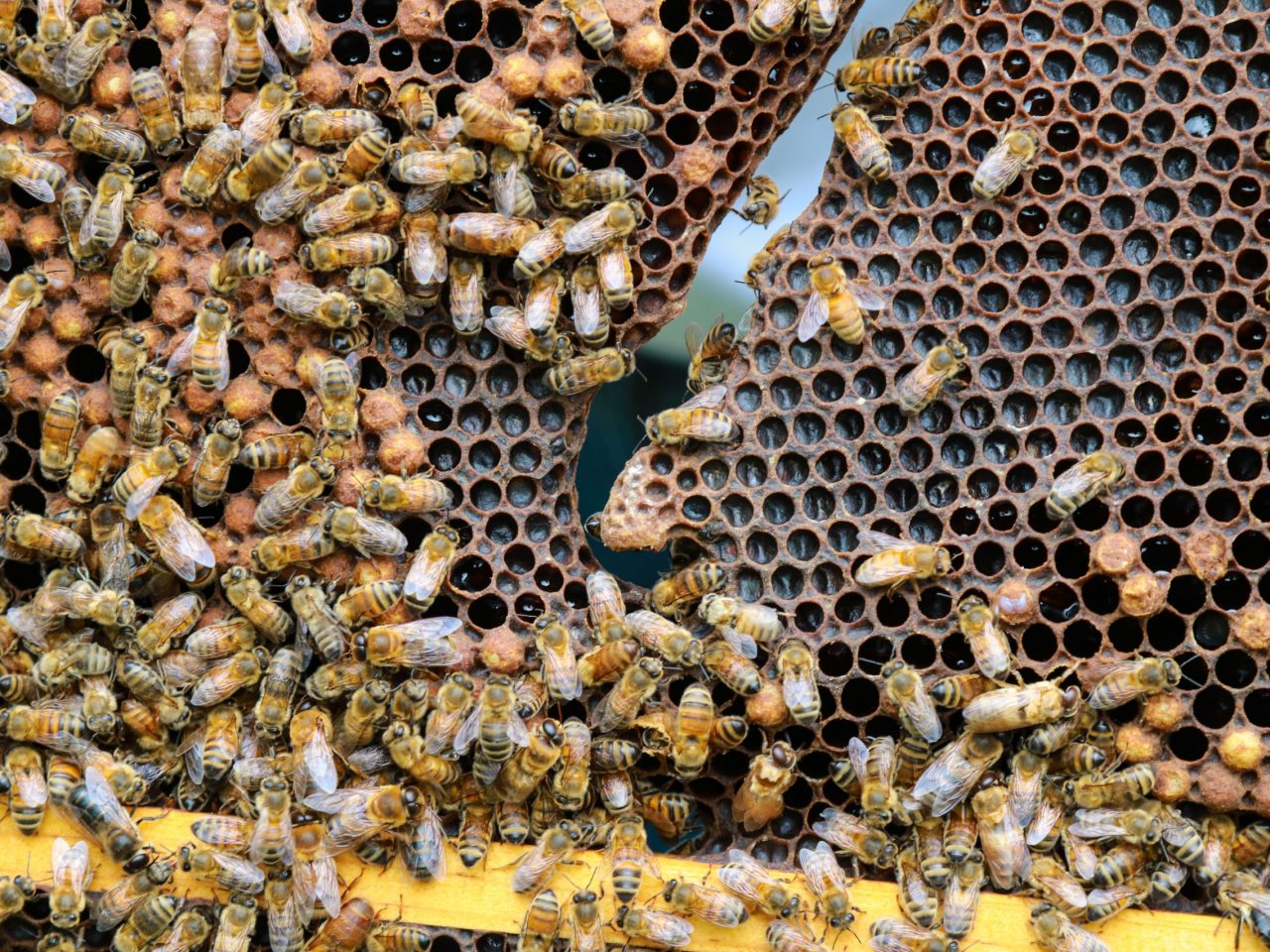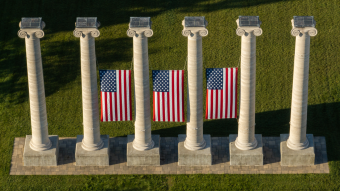August 17, 2021
Contact: Sara Diedrich, diedrichs@missouri.edu, 573-882-3243
Every two weeks Henry Frees straps into his bright white bee suit, which looks like a leftover prop from a sci-fi movie, and calmly enters an enclosure that is home to thousands of bees. The suit only falls to his waist, and his blue jeans are a reminder that — as hobbies go — this is hard work.
Still, Frees, a graduate student at the University of Missouri and member of Sustain Mizzou Beekeeping, finds the hobby relaxing.
Each visit to the hives — located in the Eckles Butterfly Garden near Eckles Hall on the MU campus — begins by opening the outer and inner cover to reveal the “honey super,” which is where the frames of the hive stand vertically and offer a place for the bees to hold honey and pollen. With every trip to the hive, Frees is ensuring the colony is healthy and able to continue their vital role as pollinators.
Frees is not alone in his passion for bee conservation. This October marks the fifth year MU will commit to conserve pollinators as a Bee Campus USA affiliate. One way Mizzou has supported the honeybee population is through Sustain Mizzou Beekeeping, a student-run group that has maintained beehives on campus since 2015.
The apiary, or beeyard at Mizzou, is located in an ideal location for the hives because of its proximity to native plants and other pollinators such as butterflies.
“It seemed like a natural companion piece to the butterfly garden,” Pete Millier, director of the Mizzou Botanic Gardens, said. “It actively demonstrates the relationship between insects and plants.”
The plant and bee population work together to support one another. Honeybees will receive food, or nectar, from a plant and in the process spread its pollen. Then, in turn, will go on to produce seeds and eventually more plants.
Pollinators are responsible for producing one out of every three bites of food people eat. The honeybee, which is the Missouri state insect, pollinates 80% of flowering crops in the United States.
It is for these reasons that Travis Harper, an agronomist with MU Extension and beekeeper of 30 years, says that honeybees are the most important insect for humankind.
“A primary thing that makes honeybees so influential is that they can be managed,” Harper said. “Honeybees can be put into artificial homes; they can be moved and manipulated.”
This human interference is one way to help the declining bee population.
“Feral colonies are susceptible to things like mites, colony collapse and pesticides,” Harper said. “When you have someone manage them, and looking out for these vulnerabilities, you can keep them alive.”
These beehives are just one piece in the much larger picture of Mizzou’s botanical life.
With more than 700 acres of botanical gardens, MU can be described as a garden with a campus in its midst, a feature which Millier believes make Mizzou special.
“It’s a special approach,” Millier said. “We wanted to bring the natural world right to the middle of campus and make it constantly available for everyone.”
In recent years, caretakers of MU’s botanical gardens have focused on emphasizing the native plants, insects and birds of Missouri. These native elements are well adapted to Missouri’s climate and soil and thrive on campus year-round.
“Nature designed it better than any scientist could have,” Millier said. “Missouri has a wide range of botanical options. We should emphasize these natural gifts and take pride in them.”
The planting of native plants and trees also helps to repopulate the native bird and insect life. Isaac Breuer, superintendent of the A.L. Gustin Golf Course, said this is exactly what happened when pollinator plots filled with native plants were added to the course.
“The pollinator plots have brought lots of new birds and insects to the area,” Breuer said. “Even after 25 years, I’m still discovering things I’ve never seen before.”
The A.L. Gustin Golf Course, located at 18 Stadium Blvd., has implemented many measures to promote the environment of the course. The work has resulted in Gustin becoming the first college golf course to be certified by the Audubon Society as a Cooperative Sanctuary in 1997. Additionally, the city of Columbia awarded the course with the 2019 Mayor’s Climate Protection Agreement Award.
“All golf course superintendents have the responsibility to do what’s right by the environment,” Breuer said.
The A.L. Gustin Golf Course actively practices water conservation, wildlife habitat management and environmentally friendly turf management.
In 2016, the course expanded their environmental practices to include beekeeping. Currently, the course has three hives with each hive containing up to 60,000 bees.
The bees managed at both the A.L. Gustin Golf Course and Eckles Butterfly Garden are a great addition to the greater Columbia community. Honeybees will travel up to two miles to pollinate, promoting the health of plants across the community. The plants, in return, ensure the honeybees have plenty to eat throughout the year.
